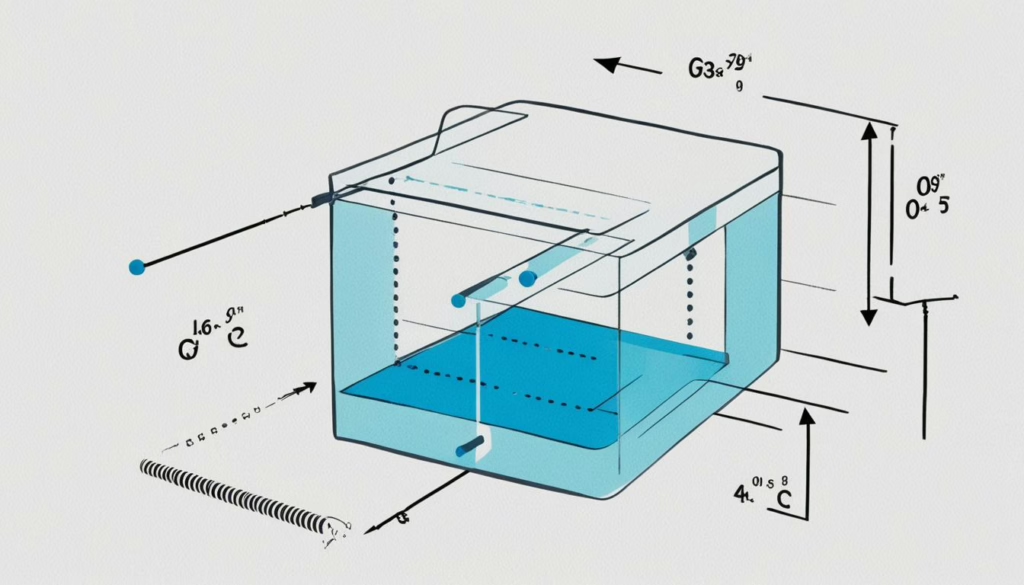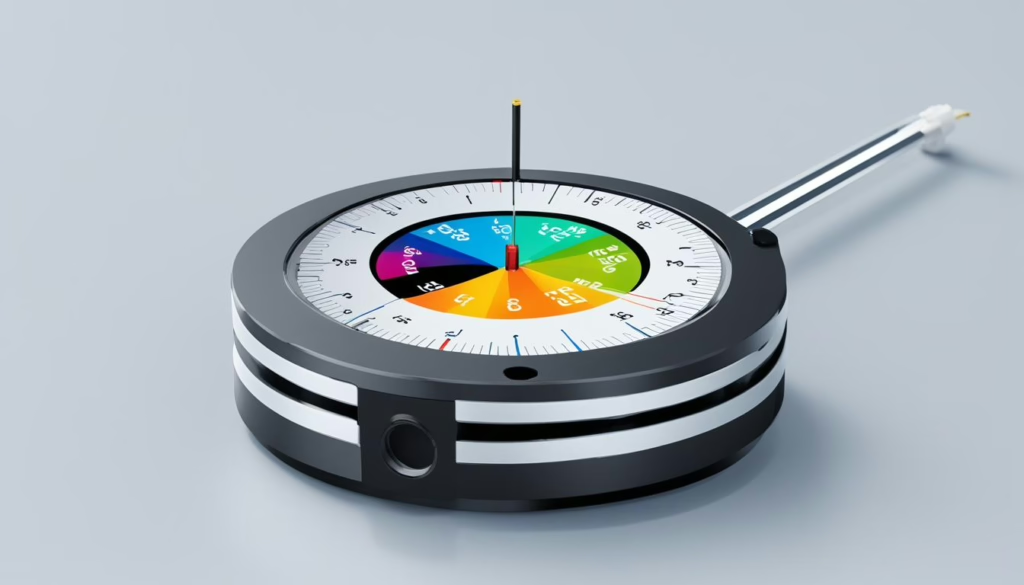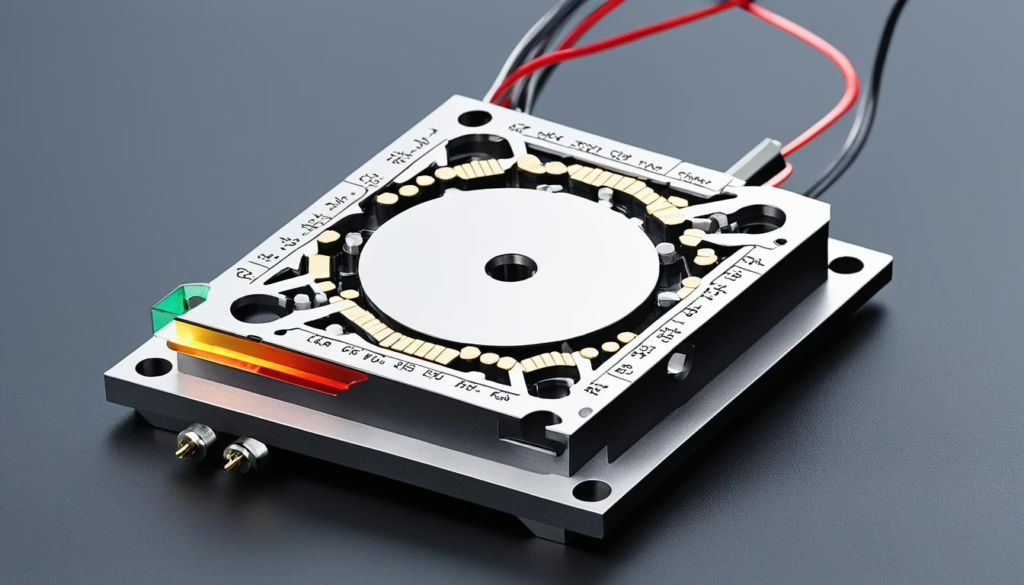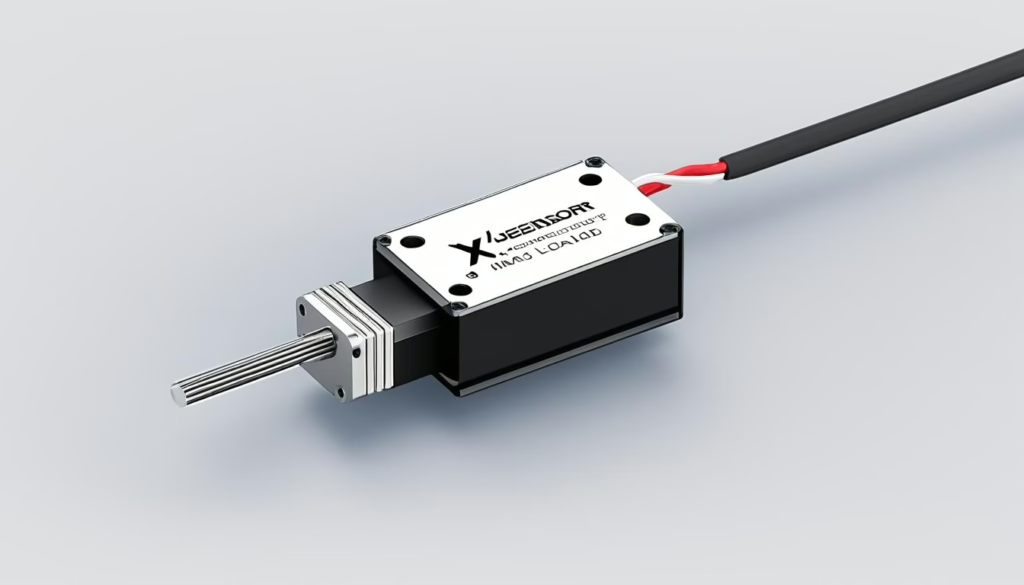Ever thought about how tiny devices can measure force so accurately? The micro load cell is a key player in precision measurement. It’s made by companies like XJCSENSOR and is vital for industries needing high accuracy in small spaces. These small but powerful tools are crucial in many fields. But what makes them so reliable and accurate?
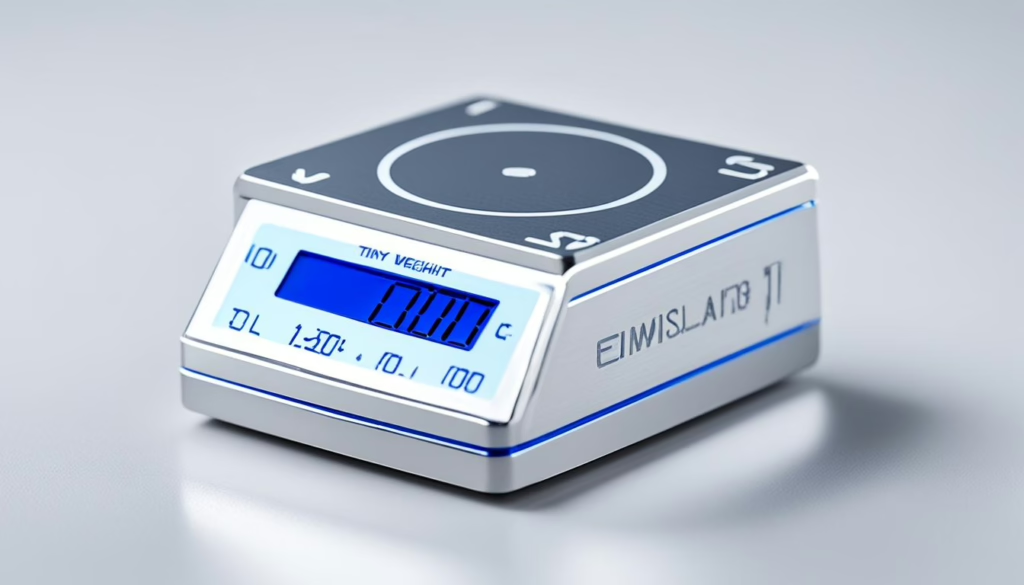
Key Takeaways
- Micro load cells are vital for precision force measurement in multiple industries.
- They offer exceptional accuracy in compact and confined spaces.
- XJCSENSOR designs micro load cells with cutting-edge technology for superior performance.
- The high accuracy load cell is critical in applications where precision is essential.
- Understanding the importance and functionality of micro load cells can maximize their use in specific applications.
What is a Micro Load Cell?
Learning about what is a micro load cell means looking at its design and how it works. These tools are key for measuring force accurately in tight spots.
Definition and Basics
A micro load cell is a special sensor for measuring force in small areas. They are small but powerful, perfect for places where space is limited. Made tough, they handle tough industrial settings and give precise readings.
Importance in Precision Measurement
The role of a micro load cell is huge, especially in areas needing high accuracy. For industries where tiny force changes matter a lot, these cells are a must. They give high precision load cell data, making them great for medical devices, car tests, and advanced making.
Comparison with Other Load Cells
When we look at micro load cells versus others, their unique benefits shine. They beat larger cells in precision for small tasks. Their small size and flexibility make them ideal for tight spots and detailed force checks.
Key Applications of Micro Load Cells
Micro load cells are key in many areas because they measure force with great precision. They are vital in fields like medicine and electronics. Their accuracy and versatility make them a must-have in many applications.
Medical Devices and Equipment
In medicine, micro load cells are crucial. They give precise force feedback in surgical tools. This ensures surgeries are done with the highest accuracy.
They also help in monitoring patients and lab equipment. This leads to consistent and reliable measurements.
Industrial and Automation Uses
In industries, micro load cells help with control and monitoring. They are used in robotics, CNC machines, and assembly lines. Here, they ensure products are made with the right amount of force and quality.
Consumer Electronics
Consumer gadgets also benefit from micro load cells. They’re in gaming controllers, touch screens, and portable devices. These sensors improve how products work and feel by giving accurate force feedback.
| Application | Example Use | Benefit |
|---|---|---|
| Medical Devices | Surgical instruments | Accurate force feedback for delicate procedures |
| Industrial Automation | Robotics and CNC machinery | Refined control and high-quality production |
| Consumer Electronics | Gaming controls and touch interfaces | Enhanced functionality and user experience |
Benefits of Using Micro Load Cells
Micro load cells bring many advantages to precision measurement in various fields. Their standout performance comes from several key benefits. These make them crucial for complex applications.
High Precision and Accuracy
Micro load cells are known for their high precision and accuracy. These qualities are vital for precise measurements. In fields like medicine and automation, accurate data is crucial. Learn more about the benefits and uses of load cells here.
Compact and Lightweight Design
They are also compact and lightweight. This makes them perfect for small spaces in electronics and medical devices. Their small size means they don’t add weight, keeping devices portable without losing accuracy.
Durability and Longevity
Micro load cells are built to last, offering reliable performance over time. This is key for tough environments or constant use. Choosing a durable load cell means less upkeep and fewer downtime issues. It also saves money and boosts efficiency. For the best results, picking the right load cell amplifier is crucial. Discover more about load cell amplifiers.
Types of Load Cells: Micro, Miniature, and Nano
Understanding the differences between micro, miniature, and nano load cells is key. Each type meets specific needs with varying precision and size.
Micro Load Cells
Micro load cells are known for their high precision and sensitivity. They’re perfect for measuring small forces accurately. Biomedical devices and research labs use them for weight monitoring and testing materials.
These load cells are versatile, fitting into both industrial and commercial settings.
Miniature Load Cells
Miniature load cells balance size with performance. They’re great for places where space is limited. Despite their small size, they’re reliable and precise, used in automated machines and robotics.
They often overlap with low profile load cells because of their focus on minimal height and efficient design.
Nano Load Cells
The nano load cell is at the top for precision. It’s made for measuring tiny forces at a nanoscale level. This is crucial for advanced research and micro-engineering.
They’re used in specialized industries and scientific studies. Their precision is unmatched, making them vital for tasks needing extreme accuracy.
Micro Load Cell: Product Features by XJCSENSOR
At XJCSENSOR, we focus on making force measurement solutions that are both accurate and reliable. Our micro load cells are made with great care. They are designed for many different industries. Let’s explore what we offer.
Overview of XJCSENSOR’s Product Line
Our XJCSENSOR micro load cell range includes many models for different needs. Each one is made for precise force sensing. This ensures they work well in important measurement tasks.
Technical Specifications
| Model | Capacity (kg) | Accuracy (%) | Dimensions (mm) | Output |
|---|---|---|---|---|
| XJC-MC1 | 0.5 | 0.03 | 12x12x5 | 1mV/V |
| XJC-MC2 | 1.0 | 0.02 | 15x15x6 | 1mV/V |
| XJC-MC3 | 2.0 | 0.01 | 20x20x8 | 2mV/V |
Our micro load cells come in different capacities, sizes, and outputs. This lets users pick the right one for their needs. Each model is very accurate, making it reliable for precise tasks.
Customer Reviews and Feedback
Customers love our XJCSENSOR micro load cells for their precision and strength. They often praise how reliable our devices are in both research and business settings. This feedback helps us stay at the top in precision force sensor technology.
Choosing the Right Micro Load Cell for Your Needs
Choosing the right micro load cell is key for accurate force measurements. Here are some tips to help you pick the right one:
Factors to Consider
When picking a small load cell, think about several things. You need to look at the load range, size, and the environment it will be in. These factors affect how well the load cell works with your setup.
Application-Specific Requirements
Every application has its own needs. It’s important to know what your application requires for precision load cell selection. Consider the type of force you’re measuring, the temperature, and how accurate you need to be.
Consultation with Experts
Talking to experts, like those at XJCSENSOR, can be very helpful. They can guide you in choosing the best micro load cell for your needs. Their knowledge ensures you get a solution that works perfectly for your application, giving you the best performance and reliability.
Installation and Maintenance Tips for Micro Load Cells
Getting your micro load cells to work well and last long is crucial. It’s important to install them right and keep them in good shape. We’ll cover how to install them correctly, maintain them well, and fix common problems.
Proper Installation Techniques
Installing micro load cells correctly is key to getting accurate force readings. Here are some steps to follow:
- Before you start, make sure the surface is flat and clean.
- Use the right hardware to secure the load cell well.
- Make sure the load presses down straight to avoid errors.
Maintenance Best Practices
Regular maintenance keeps load cells in top shape and makes them last longer. Here are some tips:
- Check the load cells often for any damage or wear.
- Calibrate them regularly to keep readings accurate.
- Keep the connectors and wires clean and make sure they’re tight.
Common Issues and Troubleshooting
Even with the best setup and care, problems can happen. Knowing how to fix force sensors is key. Common issues include:
“Load cells showing inconsistent readings often indicate loose connections or environmental interference.”
Here are steps to fix these common problems:
- Make sure all electrical connections are secure and tight.
- Keep the load cell area free from vibrations and stress.
- If problems don’t go away, recalibrate the load cell as the maker suggests.
By using these tips for installing and maintaining micro load cells, we can make them work better and last longer. This ensures we get accurate force measurements for our needs.
Future Trends and Innovations in Micro Load Cell Technology
The future of micro load cell technology is exciting, with big changes coming. These changes will be driven by new technologies, shifting market needs, and ongoing research at XJCSENSOR. Let’s explore what’s ahead to see how it will change things.
Emerging Technologies
New materials and ways to make things are speeding up innovation in load cell technology. For example, smart materials and MEMS (Micro-Electro-Mechanical Systems) are making force sensors more responsive and accurate.
Also, wireless tech and IoT (Internet of Things) are making micro load cells send data in real-time. This is making them more useful in many industries.
Market Trends
More people want force measurement in many areas, like consumer electronics, industrial automation, and medical devices. This means the market for micro load cells is growing. There’s also a move towards smaller, energy-saving devices that meet today’s high standards.
- Growth in industrial automation
- Increased application in medical devices
- Rising adoption in consumer electronics
Research and Development at XJCSENSOR
XJCSENSOR leads in making precision sensors better. Their team is always working to improve their micro load cells. They focus on making them more precise, durable, and functional. Recently, they’ve made ultra-compact sensors that work well in different environments.
| Area of Innovation | Details |
|---|---|
| Smart Materials | Use of materials that enhance sensitivity and durability |
| IoT Integration | Real-time data analytics through wireless connectivity |
| Environmental Adaptability | Sensors designed to perform under extreme conditions |
XJCSENSOR is investing in new load cell technology to meet future market needs. They aim to set new standards for accuracy and reliability in force measurement.
Conclusion
Understanding the differences between force and torque sensors is key for precise force measurement. Micro load cells are vital for this, thanks to their accuracy and small size. They are used in many fields, like medical devices and industrial automation, helping with their reliable work.
XJCSENSOR leads in precision force measurement. They focus on making top-quality, dependable micro load cells for different needs. Their products are built to last, showing their commitment to excellence.
Choosing XJCSENSOR means working with a partner dedicated to top precision and reliability. We aim to bring new force measurement solutions, making sure every application gets the best accuracy and performance.

